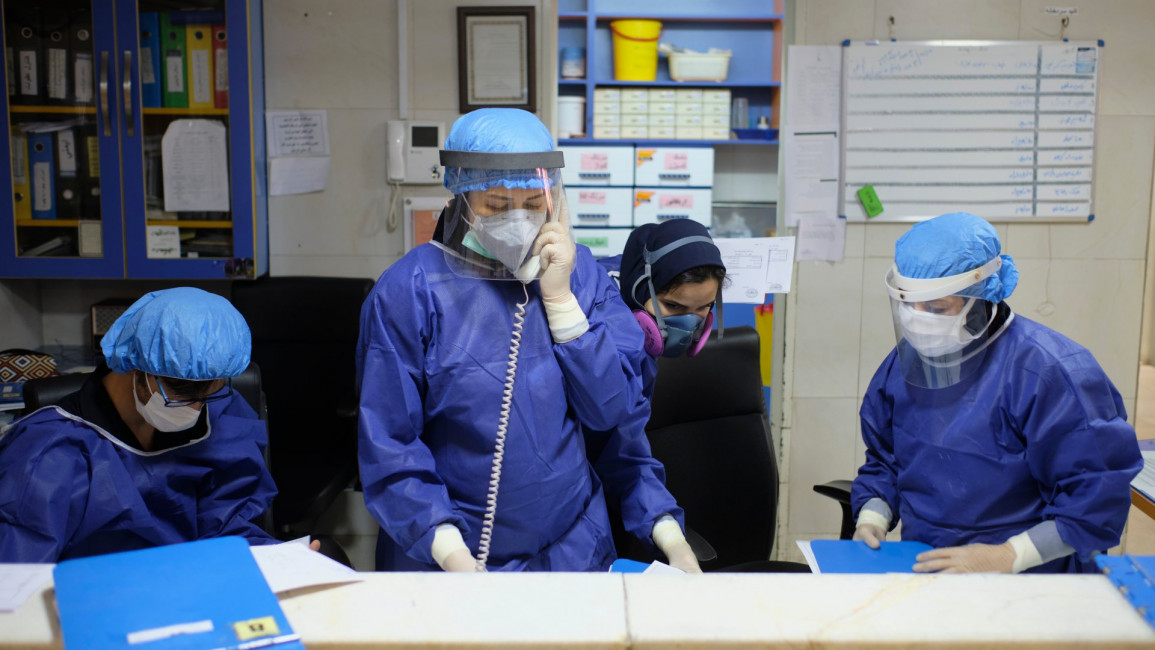Iran's hospitals turn away non-emergency patients as third Covid-19 wave hits
Iranian authorities have issued several warnings recently that hospitals are facing a severe shortage of hospital beds due to the virus, the daily death toll of which reached a record of 239 this week.
"Due to the large number of coronavirus outpatients and patients, hospitalisation of non-emergency patients is not allowed until further notice," Deputy Health Minister Iraj Harirchi was quoted as saying by Iranian media.
State media added that military hospitals will begin to admit civilian coronavirus patients.
Tehran shuttered schools, mosques, shops, restaurants and other public institutions for a second week on Friday, although state TV spoke to some shop and restaurant owners in the capital who said they had not received any order to close.
Twitter Post
|
The restrictions are largely the same as those taken early in the pandemic in Iran, which stopped short of imposing a full lockdown, despite facing the Middle East's deadliest outbreak.
The measures were progressively eased from April to avoid deepening an economic crisis precipitated by the reimposition of heavy sanctions by the United States in 2018.
Authorities will enforce Iranians to wear masks in all public places from Saturday onwards.
Footage of over 100 freshly dug graves prepared for Covid-19 victims was aired on state TV in a bid to communicate the seriousness of the country's situation.
President Hassan Rouhani on Friday condemned a new round of US sanctions on the country's banks as a "cruel, terrorist and inhumane" attempt to prevent the purchase of medicine and food during the pandemic.
Despite Washington's claims that transactions in humanitarian goods such as food and medicine were exempt from sanctions, analysts have said the measures could deter foreign banks from making any transactions with Iran, including for humanitarian goods.
Iran's health ministry said on Friday a further 210 deaths from coronavirus had taken the overall toll to 28,098. The past week alone has seen 1,500 deaths, according to state media.
More than 4,000 new cases this week have brought the total infections to 492,378.
Follow us on Facebook, Twitter and Instagram to stay connected

![Trump's warm greeting to Netanyahu contrasted with Kamala Harris's critical reception [Getty]](/sites/default/files/styles/image_330x185/public/2024-07/GettyImages-2162908988.jpg?h=69f2b9d0&itok=OLc5dL88)
![The brutal assault on Khan Younis has killed dozens and displaced thousands more [Getty]](/sites/default/files/styles/image_330x185/public/2024-07/GettyImages-2162526709.jpg?h=d3eda8cf&itok=n5N-o8p5)
![Members of the Algerian delegation threw roses into the Seine [Getty]](/sites/default/files/styles/image_330x185/public/2024-07/GettyImages-2162980872.jpg?h=199d8c1f&itok=h_3o_TOL)